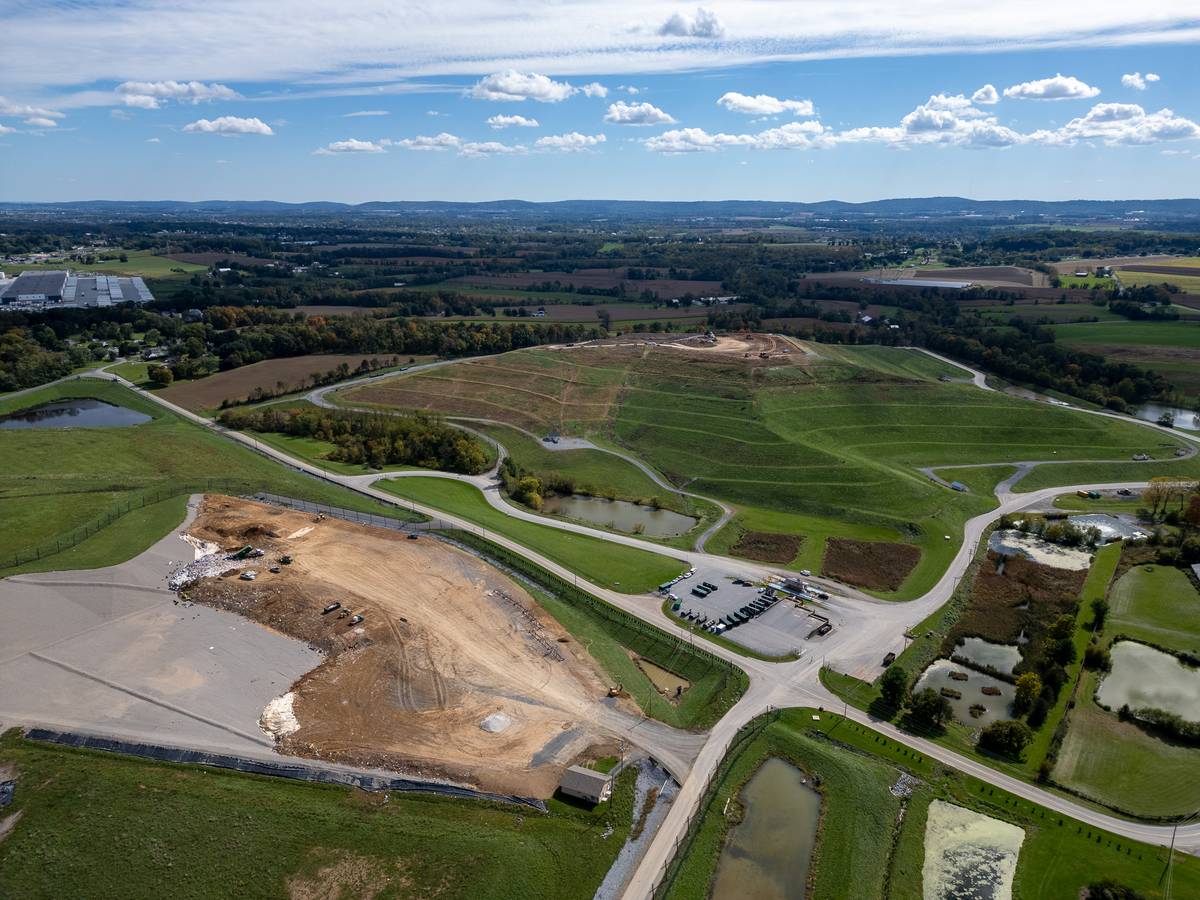This article is shared with LebTown by content partner Spotlight PA.
By Stephen Caruso, Kate Huangpu, and Katie Meyer of Spotlight PA
HARRISBURG — Gov. Josh Shapiro is expected to propose legalizing recreational marijuana, taxing popular gaming machines, and sending more money to Pennsylvania’s poorest schools when he unveils his budget pitch to state lawmakers Tuesday.
The Democrat proposed many of these ideas during his first two years in office, but was stymied by the divided legislature.
Pennsylvania faces both a mandate to reform its education system and a looming structural deficit, issues Shapiro’s budget pitch is expected to respond to with ideas for increasing revenue. Without new money, the commonwealth is on track to drain its sizable budget reserves and its rainy day fund by the end of the 2026-27 fiscal year, according to the Independent Fiscal Office.
Lawmakers do more than negotiate a spending plan ahead of the June 30 deadline. They also battle to get seemingly unrelated priorities — from overturning Pittsburgh’s rodeo ban to eliminating cash benefits for the poorest Pennsylvanians — into the final deal or agreed to at the same time.
For Shapiro, one of those priorities is a sweeping energy plan that targets carbon emissions while offering industry tax credits — a balance aimed at getting both Democrats and Republicans on board.
More money to fix inequitable schools
Hanging over this budget, as it has every year since 2023, is a ruling from a Commonwealth Court judge that found Pennsylvania’s public education system unconstitutionally inequitable and ordered lawmakers to fix it.
Last year’s budget acknowledged the size of the problem, putting the “adequacy gap” to properly fund poor schools at about $4.5 billion. Lawmakers agreed to send nearly $500 million to those schools, but did not guarantee additional funding.
Public school advocates want to make sure officials don’t drag their feet to cover the rest.
Investing an additional $500 million annually would put the state on track to close the gap in nine years. Public education advocates, some of whom helped bring the initial lawsuit and could take the state back to court, have said they support that timeline.
Sources involved in talks over education policy told Spotlight PA they expect Shapiro to propose similar adequacy spending in this new budget.
All told, last year’s plan featured more than $1 billion in new education spending, including for special education, mental health, and school safety.
It also included some new transparency measures and funding tweaks for cyber charter schools, which are governed by virtually the same 25-year-old law as brick-and-mortar charter schools.
Critics still say cyber charters need to be more transparent and are sucking up too much state money. Public education advocates say that’s another area they expect Shapiro to revisit.

Gaming, legal weed as revenue sources
Broad sales or income tax increases are unlikely to win support given the partisan divide of the General Assembly, leaving policymakers with so-called “sin taxes” to immediately boost revenue.
A Shapiro spokesperson told Spotlight PA last month that the governor again plans to pitch oversight of skill games, slot-like devices that have proliferated at tens of thousands of state bars, convenience stores, and social clubs.
Shapiro called for their taxation and regulation in last year’s budget, projecting that the effort would bring in $150.4 million in its first fiscal year, and more after that.
A wave of lobbying by monied gambling interests killed the effort last year. Top GOP leaders in the upper chamber have already signaled that they plan to take up the issue anew this session, arguing that skill games’ lack of rules and restrictions has become a public safety issue.
Shapiro is also expected to reprise his call to legalize and tax recreational cannabis. While at least some members in both chambers and parties support the move, they disagree about how a legal marijuana industry should be organized and regulated.
Some lawmakers support creating a system of state-owned cannabis stores; others want established medical marijuana sellers to be allowed to expand.
Complicating the debate is state Senate leaders’ preference for the federal government to take the lead on legalization.
State Rep. Dan Frankel (D., Allegheny) leads a key committee that will likely handle marijuana legislation, and he is sponsoring a legalization bill. He said he has spoken with Shapiro and members of the administration on the issue, calling the governor “somewhat agnostic” as to how lawmakers choose to legalize cannabis.
But legalization is something that Shapiro “wants to get done,” he said. Shapiro’s 2024 proposal projected that the legal marijuana industry would bring in $250 million annually once fully up and running.
The state government has a lot of extra cash on hand: roughly $10 billion built up during the pandemic due to federal aid and higher-than-expected tax returns. However, the recent increase in spending on education and economic development in Shapiro’s first two budgets was paid for using the surplus.
Pennsylvania is expected to spend $3.4 billion more than the revenue it brings in to cover the $47.6 billion budget. If spending doesn’t slow down, or if new revenue isn’t raised, the state is projected to blow through almost all of its budget reserve and rainy day fund in the next two budget cycles, meaning the money would be mostly gone by 2027 at the latest.
In December, state Senate Majority Leader Joe Pittman (R., Indiana) told Spotlight PA that the coming budget should be “austere,” pointing to slowing revenue, the court-ordered increases in state education spending, and inflationary pressures driving up human services spending.
“We’re hoping that revenues increase over time, but we’re going to have to get the expense side of the equation tamped down in the upcoming fiscal year,” Pittman said.
Speaking to reporters, state House Majority Leader Matt Bradford (D., Montgomery) said he agreed with Pittman that legislators must deal with the structural deficit, which has escaped a solution for almost two decades.
But he countered that the state could address the deficit by passing pro-business policies to spur growth, like speeding up the decline of the state’s corporate tax rate and changing how permits are issued.
“We need to double down on that and say ‘Pennsylvania is open for business,’” Bradford said.
An alternate climate change program
Shapiro laid out the vision for his energy-focused “Lightning Plan” in Pittsburgh last week. Lawmakers are already familiar with many of the plan’s key elements, which Shapiro introduced last year. These include:
- A state-based alternative to the Regional Greenhouse Gas Initiative (RGGI), an interstate cap-and-trade program that forces power producers to pay to emit carbon. The Pennsylvania Climate Emissions Reduction Act (PACER) would allow the commonwealth to set its own cap on carbon emissions, and the administration says most of the resulting revenue would go to electric bill rebates.
- A rewrite of the state’s alternative energy standards, known as the Pennsylvania Reliable Energy Sustainability Standard (PRESS). It would require electric companies to buy more renewable energy.
- The repurposing of an existing $2.6 billion tax credit that has gone unused to benefit “reliable energy sources,” hydrogen projects, and producers of sustainable aviation fuel.
Shapiro positioned his proposals as an alternative to the state participating in RGGI.
Former Democratic Gov. Tom Wolf moved to bring Pennsylvania into the multistate effort to address climate change, but faced immediate opposition from legislative Republicans, business groups, and the state’s powerful building trades unions. A state appellate court later blocked the state’s participation, a ruling that has been appealed to the state Supreme Court.
Shapiro has said he’s skeptical of the initiative, though his administration is challenging the appellate ruling in court because it tests the governor’s executive powers. His repackaged energy platform is the “quickest way out of RGGI,” Shapiro said Thursday, calling for the General Assembly to pass a plan like his own.
“If the legislature does that, I will sign it into law and immediately remove the commonwealth from RGGI,” he added.
The Lightning Plan also includes some new ideas, or spins on older ones.
One is the creation of a board that would make decisions about which sites to choose for new energy projects, like power plants. Those decisions are currently made by the Department of Environmental Protection, and in a news release, the administration said Pennsylvania is one of just 12 states without a board dedicated to siting.
The entity would be known as the Pennsylvania Reliable Energy Siting and Electric Transition (RESET) Board, and its mission would be to “speed up permitting, reduce red tape, and support the next generation of energy projects.” The proposal echoes one supported by state Senate Republicans last year; that legislation passed the chamber along party lines but never advanced in the state House.
Shapiro also wants to update Act 129, a 2008 law that incentivizes purchasing energy-efficient appliances; it hasn’t seen its standards updated since being enacted. The goal, the administration said in its news release, is to lower electricity use and electric bills.
Many environmental groups said they were generally happy with the proposal, which they characterized as pragmatic for a fossil fuel-rich state that is attempting to usher in cleaner energy producers.
The Environmental Defense Fund called the plan “forward-thinking” in a statement, saying it “strengthens Pennsylvania’s leadership in the energy sector while prioritizing a cleaner, healthier future for all residents.”
Katie Blume, the legislative director of the environmental group Conservation Voters of Pennsylvania, called it an ambitious plan that “has something for everyone.” She was impressed by the proposal to update Act 129, but added that she also would have liked to see more tax credits for producing clean energy.
“Not everybody is going to like 100% of the package,” Blume said. “But it addresses concerns from multiple types of stakeholders.”
Rob Bair, who leads the Pennsylvania Building and Construction Trades Council, which lobbies on behalf of tens of thousands of unionized construction workers, echoed Blume.
“We have a golden opportunity this session if people want to come to the negotiating table,” Bair said. “We get fixated on RGGI and we’re not looking at the big picture.”
State Senate President Pro Tempore Kim Ward (R., Westmoreland) criticized Shapiro’s RGGI alternative on social media, calling it “just a rebranded carbon tax.”
In a statement, Luke Bernstein, CEO of the Pennsylvania Chamber of Business and Industry, said that permitting reform and tax incentives would attract “private-sector investment.”
But he decried Shapiro’s continued insistence on capping carbon from power plants, saying that such a policy would “undermine these efforts by discouraging reliable energy production, eliminating jobs, and driving up costs for families and businesses.”
WHILE YOU’RE HERE… If you learned something from this story, pay it forward and become a member of Spotlight PA so someone else can in the future at spotlightpa.org/donate. Spotlight PA is funded by foundations and readers like you who are committed to accountability journalism that gets results.























